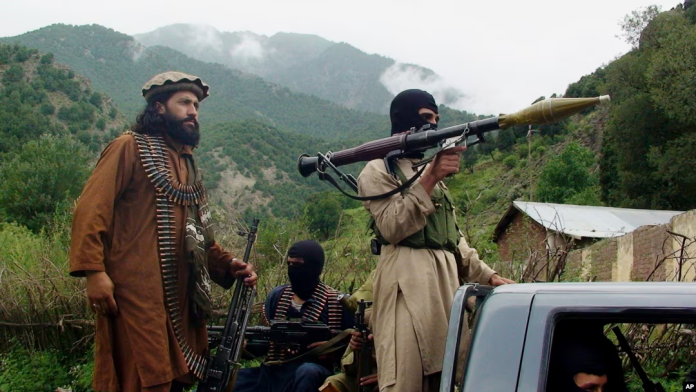UNITED NATIONS, FEB 14 (APP/DNA):The Tehrik-i-Taliban Pakistan (TTP), a United Nations designated terrorist group, continued to receive from Afghanistan’s de facto authorities logistical and operational space as well as financial support in conducting cross-border attacks in Pakistan, according to a new U.N. report.
The U.N. sanctions monitoring team released its annual assessment late Thursday amid a surge in TTP terror attacks against Pakistani security forces and civilians, killing a number of them in recent weeks.
“The ambition and scale of TTP’s attacks on Pakistan, though, had significantly increased, with over six hundred attacks during the reporting period, including from Afghan territory,” the United Nations Analytical Support and Sanctions Monitoring Team reported.
TTP, it said, established new training centers in Afghanistan’s Kunar, Nangarhar, Khost, and Paktika (Barmal) provinces while enhancing recruitment within the group’s cadres, including from the Afghan Taliban.
Also reported was an increase in collaboration between TTP, Afghan Taliban, and al-Qaeda in the Sub-continent, conducting attacks under the banner of Tehrik-e-Jihad-e-Pakistan.
“Greater facilitation among these groups and TTP in terms of provision of suicide bombers and fighters and ideological guidance might transform the latter into an extra-regional threat and an umbrella organization for other terrorist groups operating in the region,” the report said.
“With over two dozen terrorist groups operating in Afghanistan, the security threat emanating from the country is a continuing driver of instability in the region and beyond,” it said.
“The presence of terrorist organizations in Afghanistan posed a serious challenge to the stability of the country, as well as to the security of neighbouring states.”
According to the report, ISIL-Khorasan suffered a significant setback in the summer, when Pakistani security forces foiled an attempt by its external operation branch to establish itself inside Pakistan, resulting in the arrest of high-profile operatives. These included Adil Panjsheri (Afghan), Abu Munzir (Tajik) and Kaka Younis (Uzbek), who, it said, were central figures in the recruitment, travel and funding of fighters and suicide bombers.
“To avoid detection and minimize arrests, ISIL-K leadership replaced electronic and internet-based communications in favour of old-fashioned methods through a network of couriers to deliver instructions and conduct in-person meetings.”
The Majeed Brigade, a dedicated death squad of the Baluchistan Liberation Army claimed carrying out several high-casualty attacks in the reporting period.
The brigade included females in its ranks and operated across the southern region of Pakistan, including Awaran, Panjgur and Dalbandin, it was pointed out.
The Majeed Brigade, according to the report, maintained connections with TTP, ISIL-K and other terrorist groups, including ETIM/TI.
It also said that ISIL-K represented the most serious threat to the de facto authorities, ethnic and religious minorities, the UN, foreign nationals and international representatives in Afghanistan.
The killing of acting Minister of Refugees & Repatriation, Khalil Ahmed Haqqani in a suicide bombing on 11 December, claimed by ISIL-K, marked the highest-profile casualty within the de facto Cabinet since the Taliban takeover, the report said, pointing out that the move was aimed at undermining Taliban’s credibility in providing security.
“ISIL-K benefited from the Taliban’s inability to protect itself against infiltration and corruption among its own ranks, despite raids conducted to arrest disloyal officials.” The group continued building its capabilities to threaten Central Asian countries from northern Afghanistan.
The group, it said, consolidated its support base while seeking to capitalize on the growing dissatisfaction among ethnic Tajiks against Taliban rule in northern provinces.
“Despite Taliban pressure against ISIL-K, particularly in Helmand and Kandahar Provinces, farmers affected by the poppy cultivation ban reportedly provided shelter for the group’s fighters in retaliation.”
ISIL-K maintained a presence across the region, while Afghanistan remained the main hub for ISIL-K’s recruitment and facilitation, the report said adding that the group prioritized the movement of fighters into the country. “Central Asians, mostly Tajik nationals, were recruited and used in this process.”
As regards al-Qaeda, the report said it sought to strengthen cooperation with regional terrorist organizations of non-Afghan origin that operate in the country (TTP, Islamic Movement of Uzbekistan, ETIM/TIP, Jamaat Ansarullah) to expand their presence in neighbouring countries.
“Member States judged Sayf al-Adl’s strategy to reorganize Al-Qaeda’s presence in Afghanistan and reactivate sleeper cells in Iraq, Syria, Libya, and Europe indicative of the group’s longer-term intent to carry out external operations.
“The Taliban maintained a permissive environment allowing Al-Qaeda to consolidate, with the presence of safe houses and training camps scattered across Afghanistan,” the report added.

















